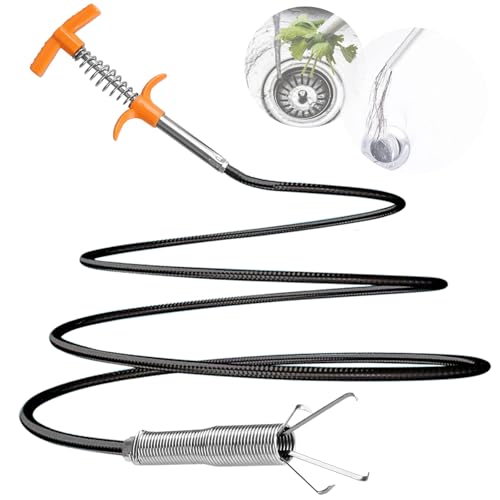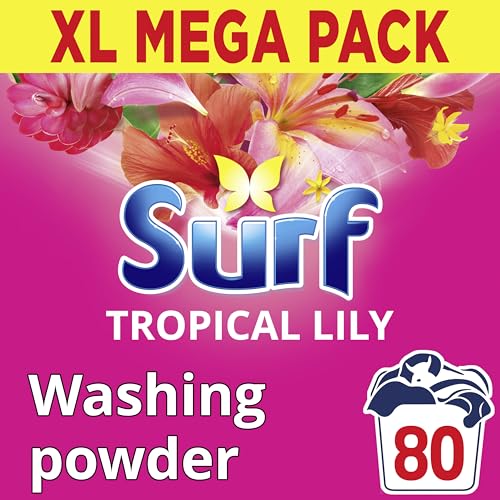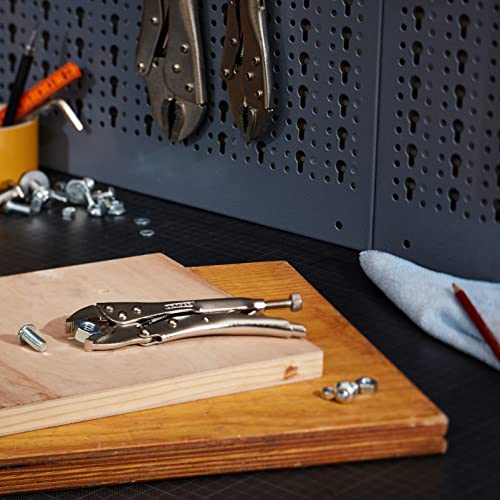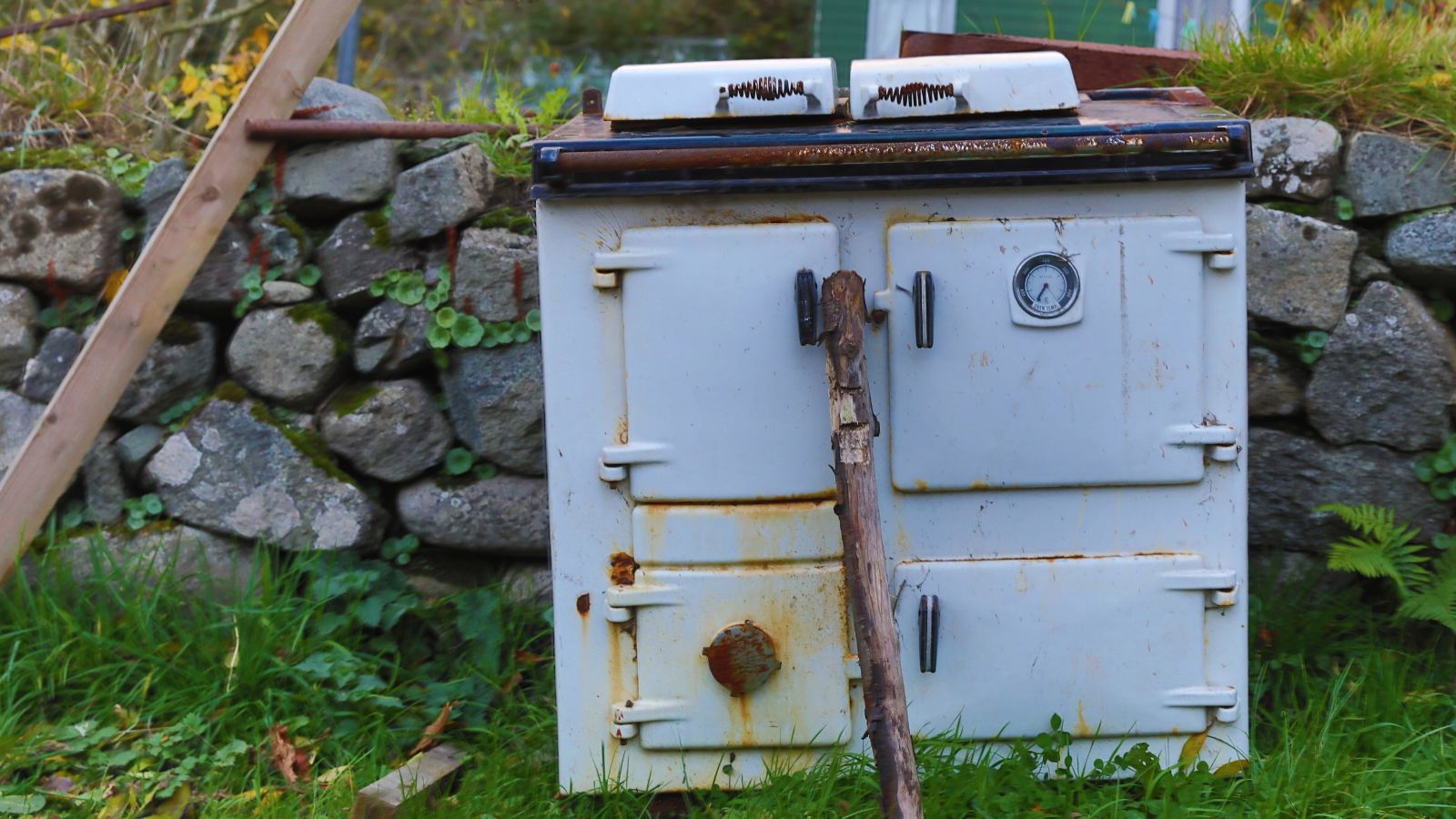Want to know how to unblock a sink without a plunger? Experts reveal five ways to get it done
No plunger to hand? Here we look at the alternative options to unblock a sink without a plunger
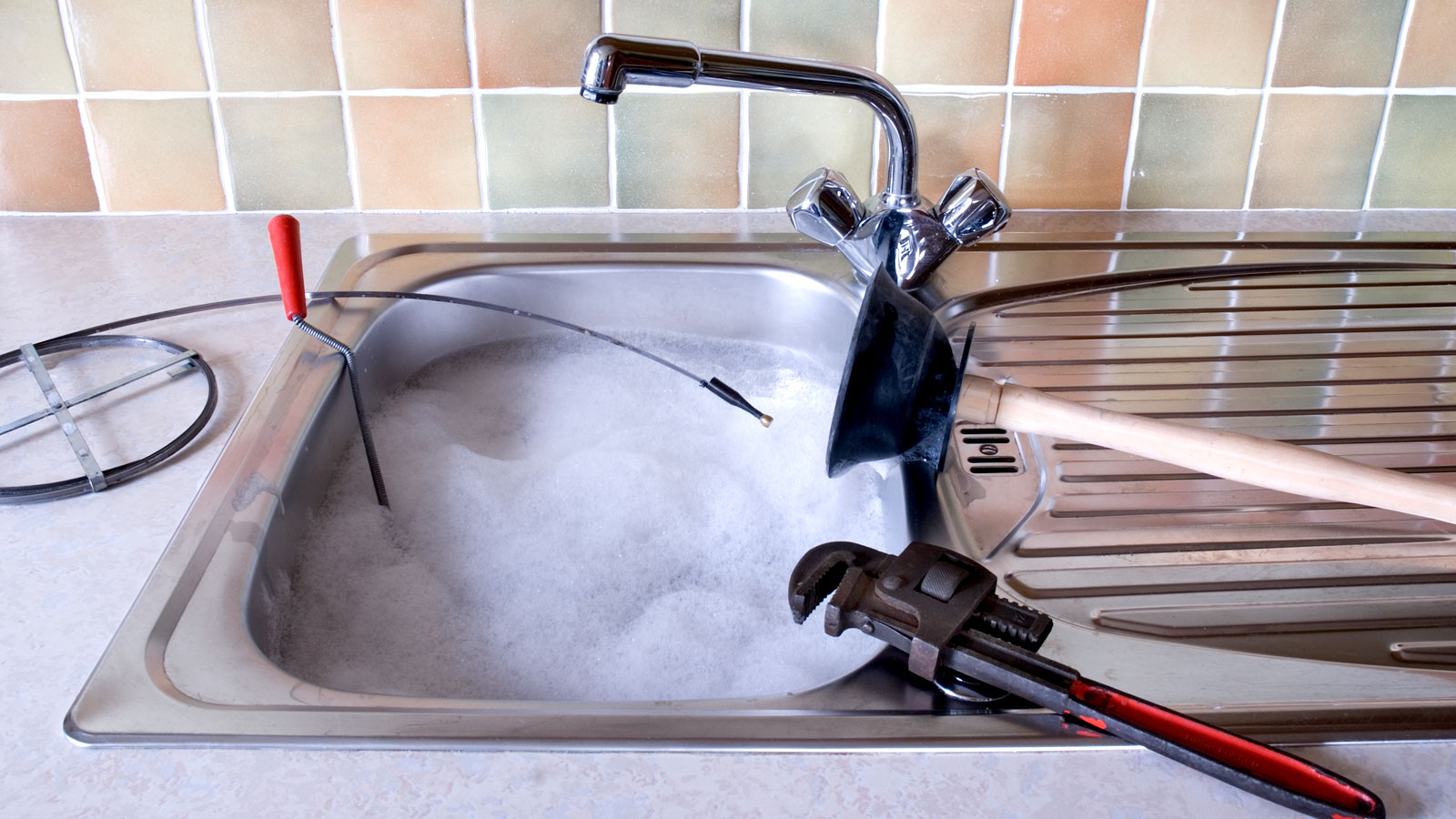
Bring your dream home to life with expert advice, how to guides and design inspiration. Sign up for our newsletter and get two free tickets to a Homebuilding & Renovating Show near you.
You are now subscribed
Your newsletter sign-up was successful
When your sink gets blocked, it's time to get out your plunger. But what happens if you can’t find your plunger? You need to look for alternative options to unblock a sink without a plunger.
You could do the washing up in one of the best integrated dishwashers if you have one, but this isn’t a long-term solution. A more sensible option is to see what else you have at home that you could try.
It could be something as simple as pouring hot water. If not, try the expert tips and techniques you’ll find in this guide. We guarantee one will work.

Georgina is a home cleaning expert at Housekeep. She's interviewed thousands of the UK’s best cleaners and tradespeople, along the way learning the top tricks of the trade.
Ways to unblock a sink without a plunger
A plunger is a quick and usually effective way to unblock a sink – and unblock a toilet. But if you don’t happen to have a plunger handy in the home, or it's simply not doing what it should do, there are alternative options that can take a plunger's place. Some are more effective than others.
1. Introduce a drain cleaner
Stubborn blockages are not always the friend of a plunger and often require extra help to remove them. Georgina Shepherd, Home Services Expert at Housekeep, suggests using a drain cleaner: “Chemical drain cleaners work by triggering reactions that release heat and break down clogs.” She adds, “This heat helps melt grease and soften hair, making it easier to dissolve and flush away the blockage.”
Shepherd offers a couple of recommendations: “I’d go with the HG drain unblocker (available from B&Q) - it’s effective, budget-friendly, and you don’t need to dilute it.” She adds, “Another good one is Mr Muscle drain gel (available from Amazon). It's a gel, so it clings to the blockage more effectively.”
She adds a word of warning, “Whatever type of chemical product you're using, always read the label carefully and use with caution.” She adds, “If you're unsure, it’s often better to go with a more natural cleaner or just call out a plumber.”
2. Try a drain snake
If you don’t want to use a chemical cleaner, you can try a drain snake. Shepherd explains what they are. “A drain snake is essentially a long, flexible metal coil that you feed down into the drain. You can twist it to break up the clog or hook onto whatever’s causing the blockage and pull it out.”
Bring your dream home to life with expert advice, how to guides and design inspiration. Sign up for our newsletter and get two free tickets to a Homebuilding & Renovating Show near you.
She adds why they are a good choice, “They’re great for a few reasons: they’re affordable, reusable, and pretty easy to use. If you’re looking to buy one, just make sure the thickness is suitable for your plughole size.”
Try these tools to help unblock a kitchen sink
3. Create a hand plunger
If you have nothing to hand, you can use your hands as Shepherd shares, “If you’re in a pinch, you can try using your hand to form a seal over the plughole and push to create suction, sort of like a makeshift plunger.” But it's not an ideal choice, continues Shepherd, “It’s a bit messy, but it can sometimes do the trick for lighter clogs.”
4. Remove drain trap
Removing a drain trap is more involved than using the other methods, but it is a good idea to give it an annual clean to help stop blockages. Shepherd points out, “The U-shaped pipe under the sink collects grease and debris, which can build up over time and cause a clog.” To give it a clean, she says, “Place a bucket underneath, unscrew the trap, and scrape out any residue – just remember to wear gloves, as it can get quite messy!” Find out more in our fitting a kitchen waste guide
It's also a good idea to clear the area under the sink and have a few old towels nearby in case there is any spillage.
5. Wash away
If you've got nothing suitable in the home to help unclog a sink, Shephed suggests using washing power, "Washing powder can sometimes help with greasy blockages. It’s a gentler approach, but combined with hot water, it can loosen things up quite well."
FAQs
Does boiling water unblock a sink?
Boiling water is a quick and cost-effective option, as Jess Thomas, MD of Drainage Central, points out, "Boiling water is a quick solution to unblock a sink, as the hot temperature of the water can help to melt or dissolve substances that may be causing the blockage, such as soap or grease."
He adds, "However, it is only likely to work on soft blockages and may not be suitable for all types of plumbing. If your home has PVC pipes, you should avoid using hot water to clear blockages, as the high temperature can soften the material and cause damage."
Can I make my own homemade drain unblocker?
There are several options for creating a DIY unblocker. Thomas reveals three of his recommended choices:
1. Wire coat hanger
Straighten out a wire coat hanger and shape one end to form a hook. Carefully insert the hanger into the drain, hook side down and try to pull out whatever may be causing the blockage.
However, when doing this you will need to be cautious to avoid pushing the blockage further down the drain.
2. Salt, borax and vinegar
These ingredients can be used to create a mixture that can be used on tougher blockages. Combine a quarter of a cup of salt, a quarter of a cup of borax and half a cup of vinegar, and then pour this down the drain followed by boiling water.
Allow the mixture to sit overnight if possible, and then flush the drain with more hot water.
3. Dish soap and hot water
If you think that the blockage in the drain is grease related, pour a large amount of dish soap (like this Mrs. Meyer's Clean Day Liquid Dish Soap from Amazon) into the drain and follow this with boiling water. The dish soap will cut through grease in the drain, while the hot water will flush away any debris.

Managing Director of Drainage Central and a well-recognised expert in the drainage and plumbing industry, Jess is dedicated to helping homeowners find effective solutions to their drainage problems.
Should you use bleach to unblock a sink?
Using bleach to unblock a sink is not recommended. Julian Gaze, Managing Director at Janitorial Direct, points out, “While bleach is good for killing bacteria and deodorising, it doesn’t break down the materials that typically cause blockages like grease, food, or hair.”
He adds a word of caution, “It can also be dangerous if it mixes with other cleaning chemicals, especially ammonia-based products, as this can release harmful fumes. Stick to products made specifically for unblocking drains or use a mechanical method like a plunger or drain snake.”

Julian Gaze is the Managing Director at Janitorial Direct, a leading UK supplier of professional cleaning products and equipment - serving domestic, commercial and industrial clients for over 35 years.
Keeping your kitchen sink and pipework clean is key to stopping blockages. If you’re having issues, you can think about replacing a kitchen sink and pipework. Check out our best kitchen sink and kitchen sink ideas guides to help you choose the right one.
Steve Jenkins is a freelance content creator with over two decades of experience working in digital and print and was previously the DIY content editor for Homebuilding & Renovating.
He is a keen DIYer with over 20 years of experience in transforming and renovating the many homes he has lived in. He specialises in painting and decorating, but has a wide range of skills gleaned from working in the building trade for around 10 years and spending time at night school learning how to plaster and plumb.
He has fitted kitchens, tiled bathrooms and kitchens, laid many floors, built partition walls, plastered walls, plumbed in bathrooms, worked on loft conversions and much more. And when he's not sure how to tackle a DIY project he has a wide network of friends – including plumbers, gas engineers, tilers, carpenters, painters and decorators, electricians and builders – in the trade to call upon.
